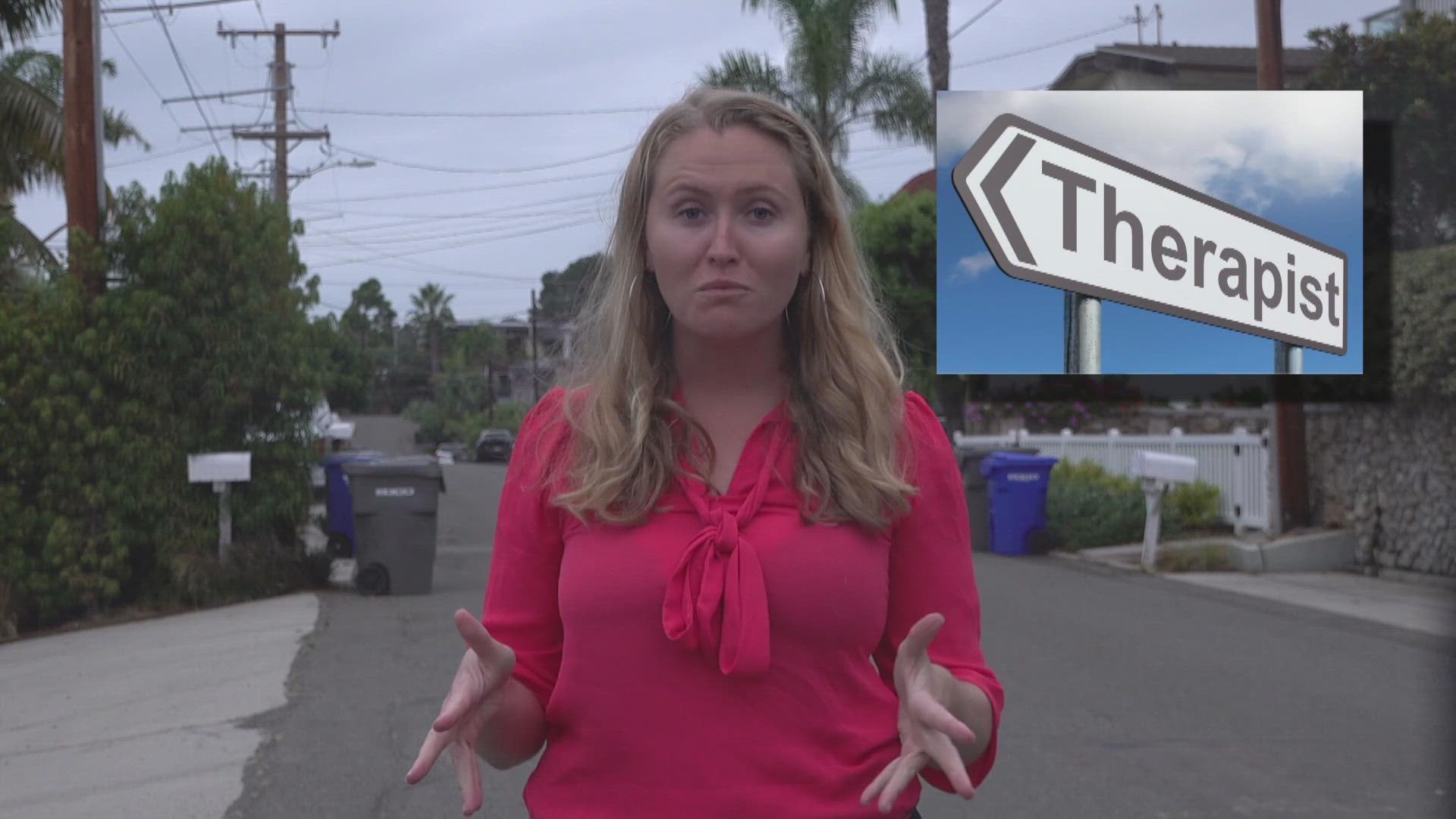SAN DIEGO — If you know a therapist, chances are, they are busy at work. Therapists in San Diego County said they are struggling to keep up with the noticeable demand.
Therapists said their phones keep ringing with potential patients seeking an appointment. So, how much has the demand gone up locally?
"Oh my gosh," said Doctor Monica Munn, an LMFT that practices in Clairemont. "Like, 100%. It’s just as you know - everyday I’m getting three or four people brand new wanting to come into counseling.”
The demand is there nationally, also. According to the Bureau of Labor Statistics, "employment of marriage and family therapists is projected to grow 16 percent from 2020 to 2030, much faster than the average for all occupations."
”I’ve never seen anything like it in my 20 years of practice," said Katie Brooks, the founder and director of Good Therapy San Diego.
Last year, the Kaiser Family Foundation said “41.2% of adults in California reported symptoms of anxiety and/or depressive disorder, compared to 37.7% of adults in the U.S.”
Brooks said she had to hire more staff members to keep up with the booming demand, and it’s still challenging to keep up.
"We’re seeing a lot of relational issues, divorce, domestic violence, increased health anxiety, anxiety in general," said Brooks. "It's a lot."
Munn, who is also a psychologist, said that she’s seen the impact of people staying home, and oftentimes, feeling alone.
”I think it’s the COVID situation and feelings of alienation that people have had and I think maybe they’ve been cooped up together, even marriages that have been together for a long time and before, you know, they could kind of get away from each other when they go to work or have other things going on, school and such, and now there’s such a feeling of being alone and needing to reach out to people," said Munn.
Another issue is finding a therapist covered by your health insurance. It can be complicated. It’s common that someone looking for help will reach out to therapists their insurance covers, only to find out that provider is all booked up with waitlists, and some practices aren’t covered by insurance, meaning clients have to pay out of pocket.
In a statement to News 8, Kaiser Permanente of Southern California said in part, "the demands on the mental health system in our country have never been greater. The pandemic has exacerbated the need for mental health care and stretched the caregivers who provide it."
Experts said there is a bright side, however. The pandemic has made some people realize it’s time to reach out for some professional help instead of delaying it.
"We’re seeing a little bit more of serious cases come in right now than I’ve seen in many years," said Brooks. "However, that’s not the bulk of the cases.”
In fact, video visits have made it easier for people to fit therapy into their schedules. Kaiser Permanente said 90% of its visits these days are virtual, whereas 16% were prior to the pandemic.
"People that work full time generally can hop on a call at lunch," said Brooks.
Both Brooks and Munn see clients both over video chat and in-person, but they both said they prefer in-person appointments ideally.
"I definitely do not see children on Zoom because they’re distracted," said Munn. "They’re in their rooms. It’s not good.”
Overall, both Brooks and Munn said more struggling kids, teenagers, and divorcing couples are searching for help locally - and they are seeing patients at odd hours to try to fit as many patients as they can into their busy schedules.
If you need urgent help, there are a number of free hotlines you can call:
– National Suicide Prevention Lifeline: 1-800-273-8255 (TALK)
– Crisis Text Line: Text NAMI to 741-741 to connect with a trained crisis counselor to receive free, 24/7 crisis support via text message
– NAMI HelpLine: 1-800-950-NAMI (6264), Monday through Friday, 10 a.m. to 6 p.m., ET
WATCH: Help for Families: Stress, Anxiety and Isolation (March 2020)


